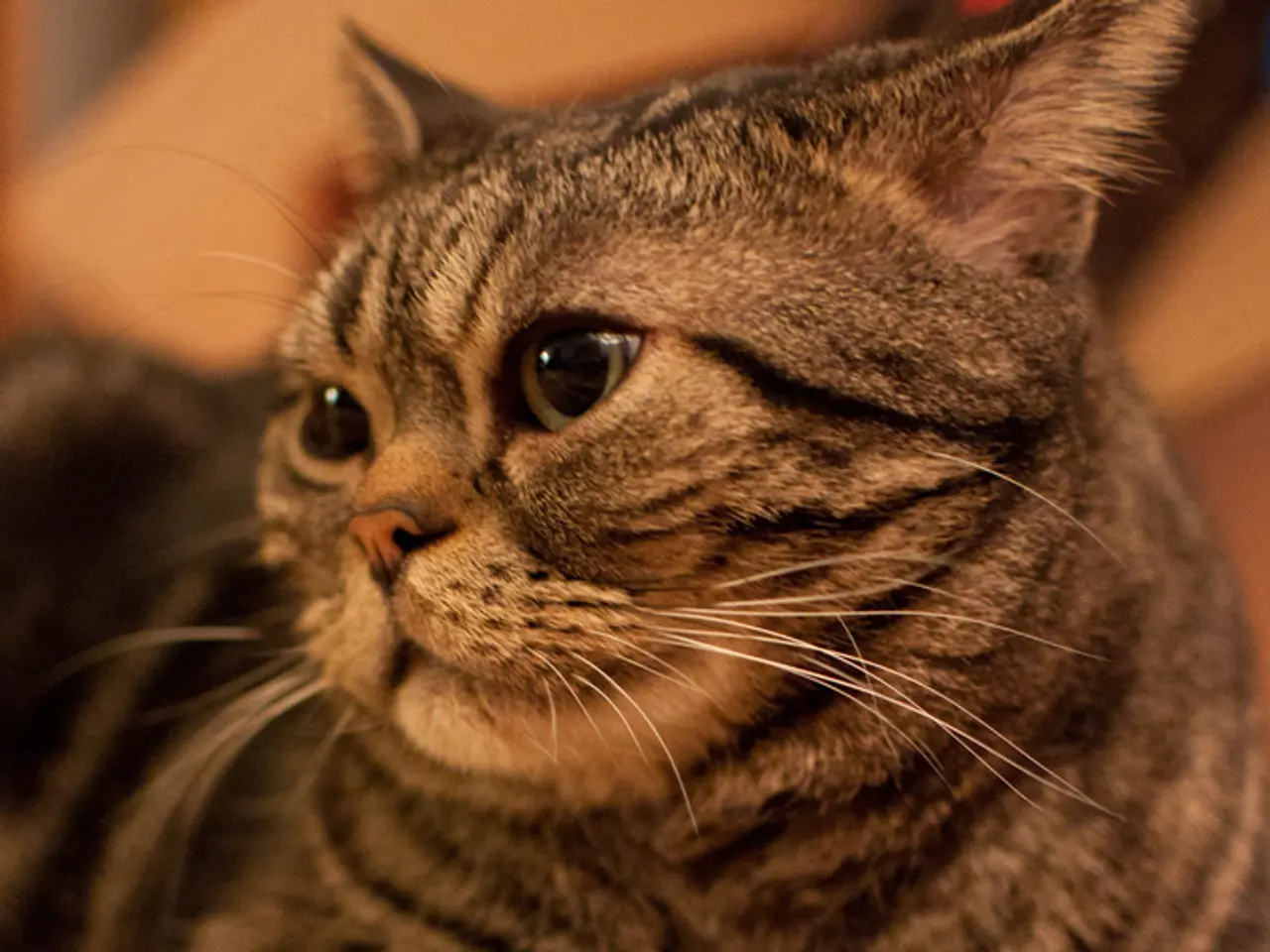Excessive Meowing by Household Feline: Understanding the Causes
Your feline friend's persistent meowing might be more than just a simple request for attention. Here's a guide to help you decipher the reasons behind your cat's excessive vocalisation and how to address the issue.
Cats may meow for various reasons, such as seeking attention, expressing boredom or loneliness, or responding to changes in their environment. Some breeds, like Siamese, are naturally more vocal, while others may meow due to hormonal behaviours during the mating season.
One of the key underlying causes could be hunger or thirst, as cats often meow around mealtimes or when their food or water bowls are empty or inaccessible. Cats might also meow persistently to get your attention for affection or play.
Stress or anxiety can also lead to louder and more frequent meowing. Changes in environment, new pets, or rearranged furniture can increase stress levels, causing your cat to meow excessively. Conditions like kidney disease, urinary tract infections, hyperthyroidism, or pain can also cause excessive vocalisation.
In senior cats, age-related dementia, also known as cognitive dysfunction, can cause disorientation and increased meowing, especially at night. Unspayed or unneutered cats may meow excessively when in heat or responding to other cats.
If your cat wakes you up by meowing at night, it might need more stimulation during the day. Cats on "wild cat time" may be hungry, bored, anxious, or affected by cognitive decline.
To address excessive meowing, maintaining consistent routines and feeding schedules is essential. Providing interactive play and exercise can reduce boredom and cognitive decline. It's important to avoid reinforcing meowing with food or attention immediately, as this can lead to learned behaviour.
Consulting a veterinarian is crucial to rule out or treat any illness, pain, or cognitive dysfunction. If excessive meowing is new, sudden, or accompanied by other signs of illness or distress, veterinary evaluation is especially important.
If no medical cause is found, focus on enrichment, such as puzzle feeders, toys, and regular interaction. Ensuring access to food, a clean litter box, and a full water bowl is key in reducing excessive meowing.
Long periods away from home can increase a cat's meowing. Using a pet sitter or making environmental changes can help if a cat's meowing has increased. Spaying or neutering can also reduce vocal behaviours related to the heat cycle and breeding season.
This comprehensive set of causes helps explain why your cat might meow excessively and guides you on how to respond effectively. By understanding your cat's meowing, you can provide a happier and healthier life for your feline friend.
[1] PetMD. (2021). Why Does My Cat Meow So Much? Retrieved from https://www.petmd.com/cat/behavior/why-does-my-cat-meow-so-much
[2] VCA Hospitals. (2021). Why Does My Cat Meow So Much? Retrieved from https://vcahospitals.com/know-your-pet/why-does-my-cat-meow-so-much
[3] ASPCA. (2021). Understanding Cat Meowing. Retrieved from https://www.aspca.org/pet-care/virtual-pet-behaviorist/cat-behavior/understanding-cat-meowing
[4] Cornell Feline Health Center. (2021). Cognitive Dysfunction Syndrome in Cats. Retrieved from https://www.vet.cornell.edu/departments-centers-and-institutes/cornell-feline-health-center/health-information/feline-health-topics/cognitive-dysfunction-syndrome-cats
- Excessive meowing in cats can signify various health issues such as hunger, thirst, kidney disease, urinary tract infections, hyperthyroidism, or pain, thereby necessitating a veterinary evaluation.
- Changes in environment, new pets, or rearranged furniture can increase stress levels in cats, leading to louder and more frequent meowing, reflecting the need for a calm and peaceful lifestyle.
- Technology can aid in addressing excessive meowing through interactive cat toys and puzzle feeders, which provide mental stimulation and enrichment, contributing to overall health-and-wellness.
- Mental health in cats is important as cognitive dysfunction, age-related dementia, and hormonal behaviors during the mating season can cause disorientation and increased meowing, especially at night, thus necessitating the consideration of adopting a consistent lifestyle and Veterinary guidance.




